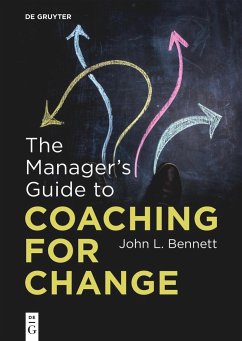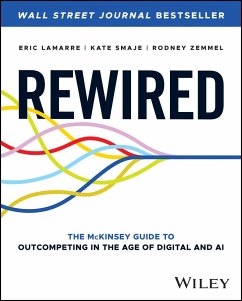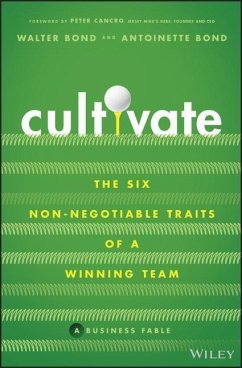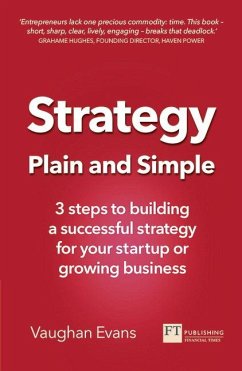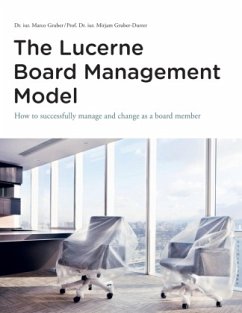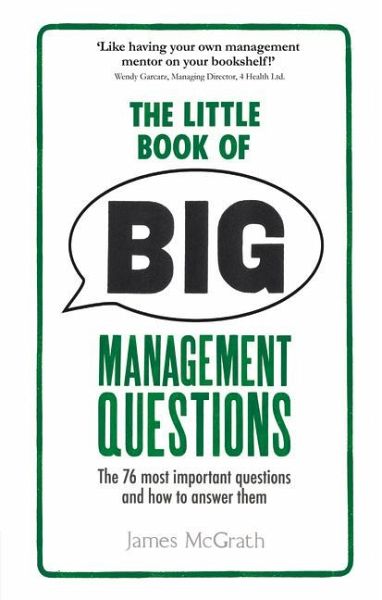
Little Book of Big Management Questions, The

PAYBACK Punkte
7 °P sammeln!
You re a busy manager and you want practical, effective answers to everyday problems fast!The Little Book of Big Management Questions provides instant solutions to the key questions that every manager asks themselves:How can I motivate my team? How do I calculate the length of the project? How do I delegate effectively? How do I prepare a strategic plan? And many, many more.Each question is easy to find, explains why it s important and the business thinking behind it. Then the fast, focused, expert solutions immediately empower you to take action and move forward with confidence.The Little Boo...
You re a busy manager and you want practical, effective answers to everyday problems fast!
The Little Book of Big Management Questions provides instant solutions to the key questions that every manager asks themselves:
How can I motivate my team? How do I calculate the length of the project? How do I delegate effectively? How do I prepare a strategic plan? And many, many more.
Each question is easy to find, explains why it s important and the business thinking behind it. Then the fast, focused, expert solutions immediately empower you to take action and move forward with confidence.
The Little Book of Big Management Questions will make sure you can:
· Instantly and expertly handle a wide range of management challenges
· Be more prepared, more decisive and more in control
· Get the best from your team, the respect of your colleagues and the support of your peers
· Fully understand your responsibilities, the company you work for and your role within it.
All you want to know and how to apply it in a nutshell.
The Little Book of Big Management Questions provides instant solutions to the key questions that every manager asks themselves:
How can I motivate my team? How do I calculate the length of the project? How do I delegate effectively? How do I prepare a strategic plan? And many, many more.
Each question is easy to find, explains why it s important and the business thinking behind it. Then the fast, focused, expert solutions immediately empower you to take action and move forward with confidence.
The Little Book of Big Management Questions will make sure you can:
· Instantly and expertly handle a wide range of management challenges
· Be more prepared, more decisive and more in control
· Get the best from your team, the respect of your colleagues and the support of your peers
· Fully understand your responsibilities, the company you work for and your role within it.
All you want to know and how to apply it in a nutshell.





